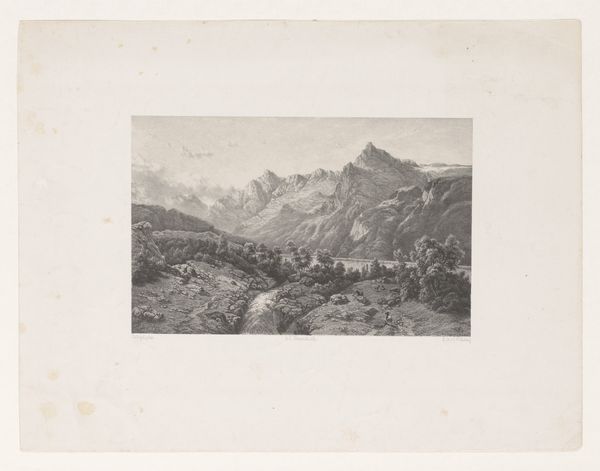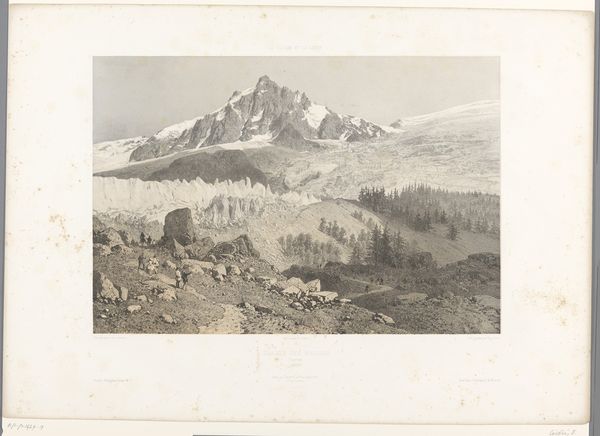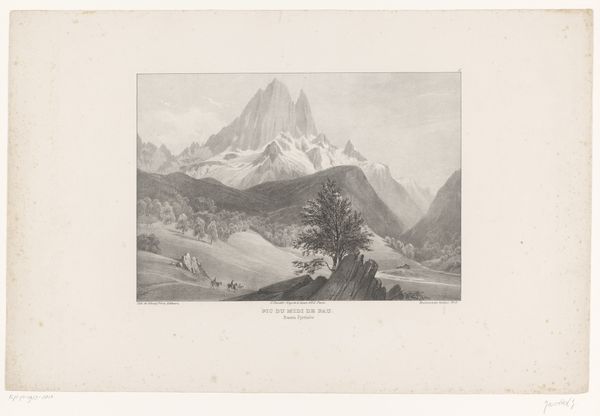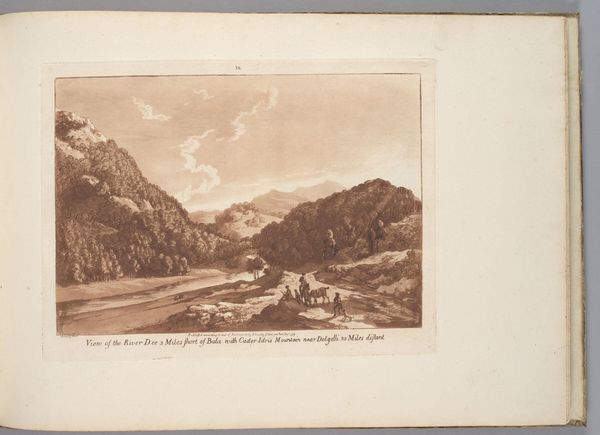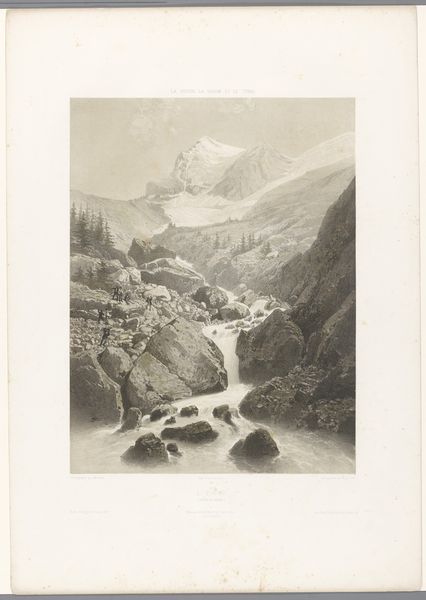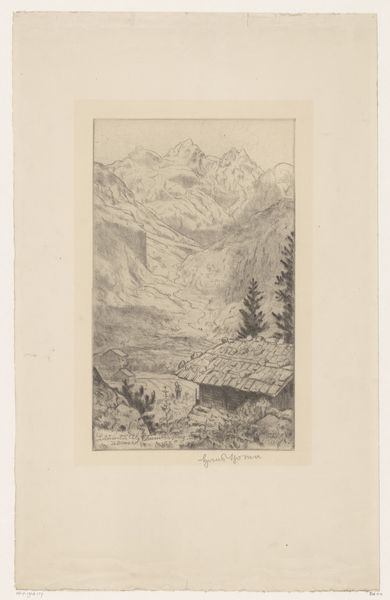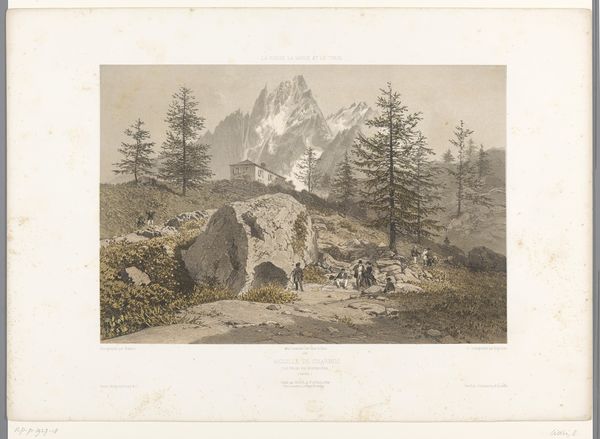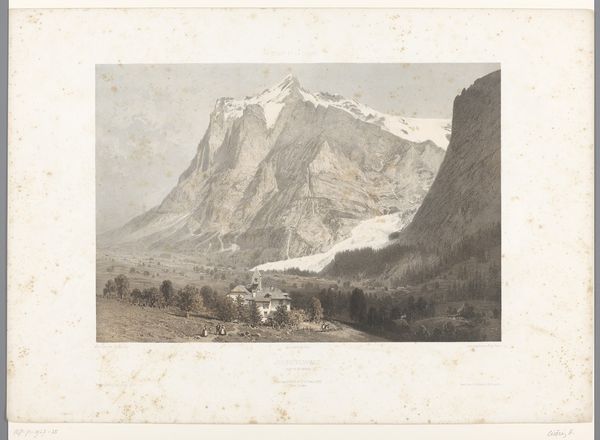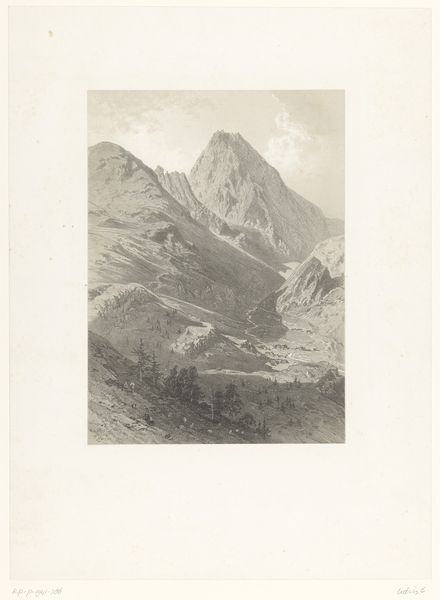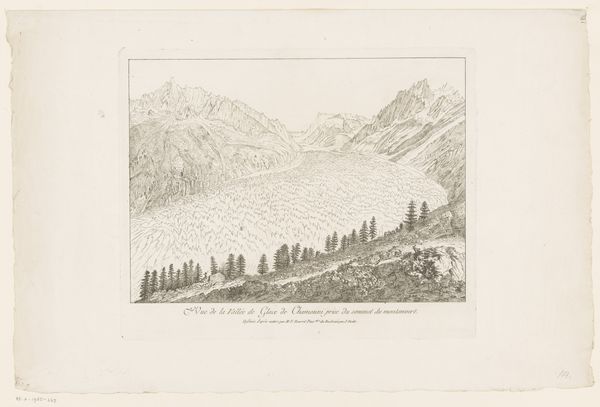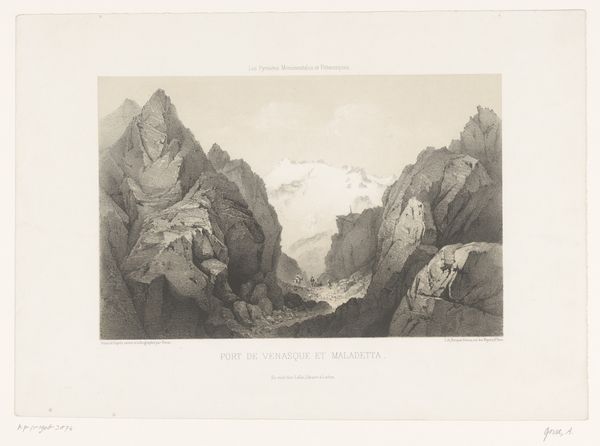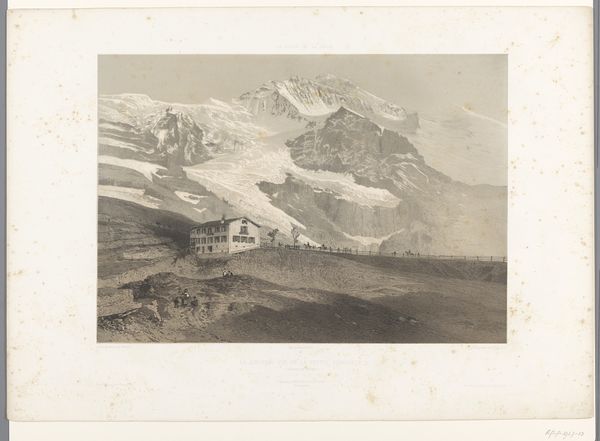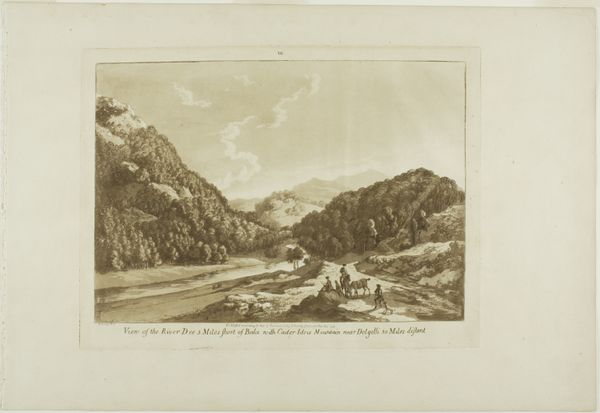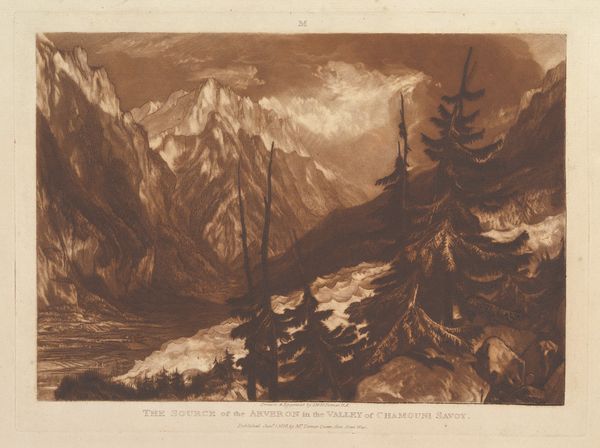
Dimensions: height 282 mm, width 399 mm
Copyright: Rijks Museum: Open Domain
This landscape with hikers and rocks was made by Eugène Cicéri, using lithography. This is a printmaking process using a flat stone or metal plate, on which the image areas are worked using a greasy substance so that the ink will adhere to them, while the non-image areas are made ink-repellent. Lithography was a relatively new technology in Cicéri’s time, and well-suited to mass production, resulting in prints that were more affordable. Here, this process results in a range of grey tones and soft textures, as well as a high level of detail in the rocks and vegetation. In a world rapidly changing through industrialization, one can imagine the appeal of landscapes like this one, and the desire to bring nature into people’s homes. The very process by which it was made, lithography, speaks to the social and economic shifts of the time. Paying attention to materials, processes, and context is essential to understanding art, as it allows us to see how art is influenced by culture and the economy.
Comments
No comments
Be the first to comment and join the conversation on the ultimate creative platform.
